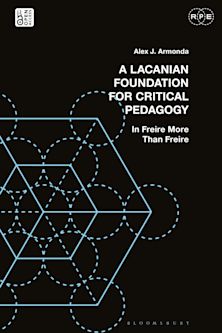- Home
- ACADEMIC
- Education
- Philosophy of Education
- Legitimacy in the Academic Presidency
You must sign in to add this item to your wishlist. Please sign in or create an account
Description
How did the 1990s and early 21st century impact the evolution of the college presidency? The legitimacy and performance of higher education were called into question during this period, and respect for some of its leaders declined. An economic downturn and the concomitant change of student enrollment patterns have required presidents to lead in compromised conditions. The new emphasis on financial management and fund raising has opened the job of academic president to those with nontraditional backgrounds. These new presidents must gain legitimacy differently from those of more traditional backgrounds, who are struggling with their own legitimacy challenges. In order to understand legitimacy, Bornstein has spplied theory from the social sciences and higher education literature, proposing five factors that influence presidential legitimacy: Individual, Institutional, Environmental, Technical and Moral. She also proposes six threats to legitimacy: Lack of Cultural Fit, Management Incompetence, Misconduct, Erosion of Social Capital, Inattentiveness, and Gradiosity. In light of these threats, she suggests strategies for gaining and maintaining legitimacy.
This book focuses on the impetus for leading change. Bornstein draws on numberouns sources for a theoretical perspective on the factors associated witht he president's role in creating legitimate change. She proposes a construct of four factors to implement legitimate change: Presidential Leadership, Governance, Social Capital, and Fund Raising. The concepts of transformational and transactional leadership are examined for their ability to facilitatle change. Bornstein finds their effectiveness limited and proposes "transformative leadership", a contextual approach that fits between transformational and transactional leadership in the conceptual continuum. Since presidents are often recruited on the basis of their academic experience, their legitimacy depends on securing resources to strengthen or transform their institution; fund raising is essential. Fina
Table of Contents
2 Acknowledgements
3 New Roles for the New Millenium
4 Achieving Presidential Legitimacy
5 Assuring the Legitimacy of Change
6 Legitimacy in the Presidential Succession Process
7 Appendix A: Interview Schedule
8 Appendix B: Survey Instrument, Cohort and Responses
9 Bibliography
10 Index
Product details
| Published | 30 Sep 2003 |
|---|---|
| Format | Ebook (Epub & Mobi) |
| Edition | 1st |
| Extent | 256 |
| ISBN | 9781461638797 |
| Imprint | Rowman & Littlefield |
| Series | ACE/Praeger Series on Higher Education |
| Publisher | Bloomsbury Publishing |
About the contributors
Reviews
-
Never before has anyone treated the cornerstone of presidential and institutional effectiveness so completely or so ably...This book simply must be read by all of college presidents, [prospective] presidents, board members, and students of their leadership. Read it and grow.
James L. Fisher, President Emeritus, Towson State University; President Emeritus, Council for Advancement and Support of Education
-
Part analytical, part acecdotal, part autobiographical, this welcome book provides a refreshingly candid and timely insight into the college presidency. Rita Bornstein's richly textured review deserves to be widely read by those concerned with the leadership and well-being of American higher education.
Frank H. T. Rhodes, President Emeritus, Cornell University
-
Rita Bornstein understands well the importance of the legitimacy of the person and the actions of the college president. In this fascinating compliation of research and recollection, she provides insights into the complexity of the president's job and the difficulty of implementing change in higher education.
Judith Block MgLaughlin, Director, Higher Education Program, Harvard Graduate School of Education



































